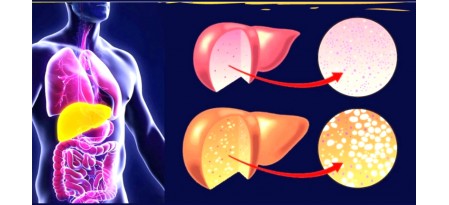Magnesium, all the secrets of the mineral, which one is better to choose.
Why is magnesium so important?
What are the norms of magnesium in blood serum?
How to determine magnesium deficiency, what tests to pass?
Why does magnesium deficiency occur?
Symptoms of magnesium deficiency in the body.
Magnesium compatibility?
Rules for taking magnesium.
What foods are high in magnesium?
Which magnesium is better, which and for what is suitable.
Magnesium overdose?
Magnesium and insomnia, how to take.
The macronutrient magnesium (magnesia) plays a critical role in the formation of more than 350 enzymes in our body. He takes part in electrolyte metabolism, energy and is one of the factors of cell growth. It acts as a membrane transport. And its anti-stress effect is just great. And if it’s just that you understand the importance of this macronutrient, then without it the heartbeat would be impossible, as well as the work of the muscles, and the synthesis of the most important hormones.
Such an important macronutrient as magnesium accumulates: in bones in 60% of the total, in skeletal muscles - 20%, tissues of internal organs (kidneys, adrenal glands, liver, brain, heart) - 19%, in extracellular structures - 1%.
How to determine magnesium deficiency?
People can recognize a lack of magnesium by some symptoms.
In women, premenstrual syndrome is more pronounced.
experience increased fatigue, irritability, depression, insomnia, anxiety, unjustified fear, mood swings, constipation, spasms of smooth and striated muscles, convulsions and nervous tics, headache, migraine, dizziness.
Violations in the work of internal organs - the cardiovascular, nervous and endocrine systems, can also indicate a lack of magnesium.
And the symptoms in children: hyperactivity or a syndrome of reduced, impaired attention.
It has been noted that excessive cravings for chocolate can also give you a hint of a possible magnesium deficiency. this confectionery "drug" is especially rich in magnesium.
If patients with chronic diseases, for example, bronchial asthma, diabetes mellitus, hypertension, degenerative joint diseases, migraine, who regularly received drug treatment, suddenly began to note the ineffectiveness of therapy, it is also necessary to check the magnesium level until the treatment regimens are corrected. Decreased magnesium levels can also reduce the effectiveness of your treatment.
What are the levels of magnesium in the blood?
A much-needed macronutrient is not synthesized in the human body, so it can only be enriched from the outside. Through food, supplements, and through the skin.
The norms of magnesium content in the blood range from 0.65 - 1.1 mmol / l, where the optimal indicator is 0.9 - 1.1 mmol / l, lower figures already refer to a deficient state. If magnesium deficiency is nevertheless confirmed in laboratory tests, then its additional intake is taken at the rate of 10-30 mg per 1 kg of body weight per day.
In pregnant women, people with high physical activity, stress and viral infections, magnesium requirements almost double.
But if you see the norm of magnesium in blood tests, then it is not a fact that you do not suffer from its deficiency. I will elaborate on this in a little more detail below.
Magnesium deficiency, why does it occur?
The absorption of magnesium is a rather complex process. When consumed with food, only 30% will be absorbed in the body, and then with the proper level of vitamin D. Also, absorption can be disrupted by excessive consumption of alcohol, nicotine, caffeine, refined foods and phytic acids. In addition, the use of certain medications can also cause a lack of magnesium in the body. These drugs include: hormonal, anticancer drugs, laxatives, antibiotics and diuretics, taking antacids for the stomach, proton pump blockers (omez, omeprazole and others) and the simultaneous intake of food enriched with magnesium and calcium.
Such patients, in addition to therapy, must be prescribed magnesium support in the form of mineral therapy. In addition to magnesium preparations, these can be Bischofite Applications and Bischofite magnesium baths.
One of the interesting facts: 2 cups of coffee a day disrupt its absorption and accelerate its excretion from the bones and tissues of the internal organs with urine, due to the content of xanthine in coffee.
The reasons for improper absorption of magnesium include - intoxication of the body with salts of heavy metals - manganese, lead, cobalt, cadmium, nickel. The danger is that they can be inadvertently consumed with some foods, such as the consumption of large fish and shellfish.
Stress is another cause of magnesium deficiency. This is explained by the fact that during a nervous load, the body releases an excessive amount of cortisol, oxytocin and adrenaline, and they, in turn, accelerate the leaching of magnesium 3 times faster than in the normal state. It is important that the work of the human nervous system as a whole is regulated by calcium and magnesium. As a result, against the background of stress, the level of magnesium falls, and because of this, all processes in the nervous system proceed abnormally, and this

 WhatsApp
WhatsApp

































-449x205.jpg)




